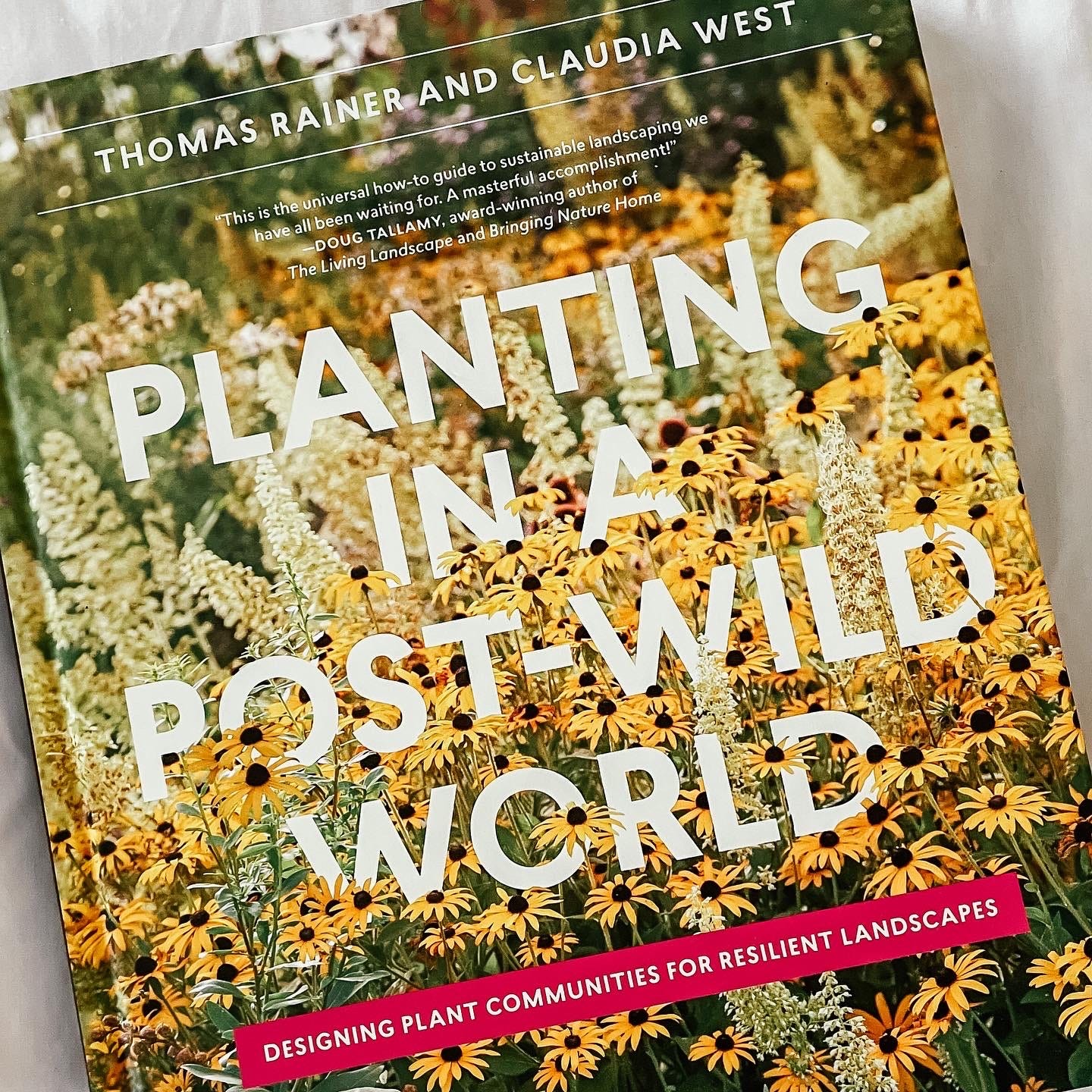Book Review: Planting in a Post-Wild World by Thomas Rainer and Claudia West
My key takeaways for home gardeners.
"This book is dedicated to anyone who can influence a small patch of land."
I loved this book. It was really geared at professional landscape designers, and thus was at many times over my level of comprehension. Still, I underlined and highlighted so many helpful principles I’ll carry with me and begin applying, particularly the way the authors communicated the overarching “Land Archetypes” as something gardeners can aim to evoke without replicating exactly. We can shoot for the feeling of…
- Grasslands
- Woodlands/Shrublands
- Forest Edge
- Forest
… and our gardens will be so much more interesting.
Favorite quotes from Planting in a Post-Wild World:
"Nature is tough, tenacious, and buoyant and it is never too late.
"Disturbed landscapes heal fast, driven by the powerful and ever-present spirit of the wild."
"...planting in the future will become more playful. More whimsical. Faced with the landscape of increasing instability, planting no longer has to be so solemn. It can loosen up. Be more frivolous. The uncertainty of the future will provide an incredible gift: it will liberate planting from all those forces that try to tame it—the real estate industry, "good taste," designers' egos, eco-evangelism, and the horticultural industry."
"Moving from the idea of a traditional planting to a designed plant community starts with letting go of the idea of plants as objects to be placed, like pieces of furniture. Instead of think of plants as groups of compatible species that interact with each other and the site."
"Stress as an Asset: Accept the constrains of the site."
"Think about seeing plants in the wild: there is almost never bare soil."
"Designed plant communities can be patterned and stylized in a way that makes them understandable, ordered and attractive. They need not replicate nature in order to capture its spirit."
"Management, Not Maintenance: When plants are arranged individualistically, they require individualistic maintenance; community-based planting requires management of the entire communty."


